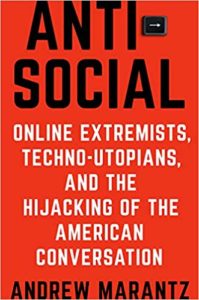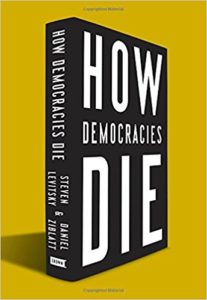Edward R. Murrow
Now, it’s the rollout.
December 18, 2020What is happening.
- Pfizer
- Vaccine
- Moderna
- Indiana
- Pence
COVID vaccine rollout, a colossal mess.
Ed Yong, The Atlantic:
12.17.20
“I think there has been a certain amount of naïveté on the part of the government about what it actually takes to turn vaccines into vaccinations,” he says. “Unless we actually put more funding into this particular area, it’s going to be a bit tragic, because we’re going to have vaccines, but we’re going to fall at the last hurdle.” [NPR]
Idaho Statesman:
[by Rachel Roberts]
“Idaho will not receive as many doses of the Pfizer COVID-19 vaccine next week as it originally expected, according to the Idaho Department of Health and Welfare.
Idaho’s allotment for next week was reduced from 17,550 to 9,750 doses.
Idaho isn’t the only state reporting a reduced second shipment, according to reports from The Washington Post and other news outlets. Florida, Illinois, Iowa, Kansas, Missouri, Oregon, Rhode Island and Washington were among the other states receiving fewer vaccines.”
From Politifact/Poynter Institute:
“Vice President Mike Pence tweeted: “On January 13, 2020 @moderna_tx partnered with President @realDonaldTrump & @NIH to develop a vaccine for the American people! Today, Moderna announced their vaccine is 95% EFFECTIVE! Operation Warp Speed is a success because of the strong leadership of this President!”
In their own recent announcements, Moderna gave Operation Warp Speed a nod, while Pfizer didn’t mention it. That can be explained by the different partnerships the Trump administration struck with the two companies.
The federal government’s deal with Pfizer would pay for the purchase of the company’s vaccine if it gets FDA emergency use authorization or approval. So Pfizer hasn’t gotten any Warp Speed funding yet. With Moderna and other companies, by contrast, the government is helping to fund the vaccines’ development and various efforts to scale up manufacturing.
Those differences may influence who can claim the credit for the breakthroughs at this stage.”
CNN/12.17.20
[By Ellie Kaufman, Sara Murray and Priscilla Alvarez]
“Multiple states have been told by the federal government to expect fewer doses of Pfizer’s Covid-19 vaccine than initially promised, leaving health officials across the country confused and frustrated about the crucial rollout plans just days after the first doses were shipped.
Officials in numerous states including Iowa, Illinois, Washington, Michigan and Oregon have said that they have been recently told they would receive fewer doses than originally planned for by the federal government’s Operation Warp Speed.
The cause of delay remains unclear to many, and comes as infection rates are spiking across the country. On Thursday, Pfizer put out a statement that the company was “not having any production issues” and that “no shipments containing the vaccine are on hold or delayed.”
“We have millions more doses sitting in our warehouse but, as of now, we have not received any shipment instructions for additional doses,” Pfizer said.
ProPublica/09.23/20
[by Issac Arnsdorf]
ProPublica is a nonprofit newsroom that investigates abuses of power.
AND.
ProPublica’s board chairman, Paul Sagan, is a member of Moderna’s board and a company stockholder.
“Trump’s vaccine Czar refuses to give up stock in drug company involved in his government role.
The administration calls Moncef Slaoui, who leads its vaccine race, a “contractor” to sidestep rules against personally profiting from government positions. Slaoui owns $10 million in stock of a company working with his team to develop a vaccine.
“Congress should strengthen the federal ethics laws to root out this kind of corruption,” Sen. Elizabeth Warren, D-Mass., said at a congressional hearing. “And the first person to be fired should be Dr. Slaoui. The American people deserve to know that COVID-19 decisions are based on science and not on personal greed.”
ABC News/7.7.20
[by Sony Salzman]
Though their journeys to a COVID-19 vaccine have been eerily similar, the companies themselves could not be more different Pfizer is a multinational pharmaceutical giant, while Moderna is a small biotechnology company that has never brought a drug to the market.
Reuters
[by Marisa Taylor, Robin Respaut]
“The federal government is supporting Moderna’s vaccine project with nearly half a billion dollars and has chosen it as one of the first to enter large-scale human trials.
But the company – which has never produced an approved vaccine or run a large trial – has squabbled with government scientists over the process, delayed delivering trial protocols and resisted experts’ advice on how to run the study, according to three sources familiar with the vaccine project. The sources said those tensions, which have not been previously reported, have contributed to a delay of more than two weeks in launching the trial of the Moderna’s vaccine candidate, now expected in late July.
In one disagreement, Moderna executives resisted experts’ insistence on close monitoring of trial participants who might contract COVID-19 for changes in oxygen levels that could signal dangerous complications. While other drugmakers complied, Moderna questioned the recommendation as a “hassle” that slowed development, one of the sources told Reuters. Jordan said the company preferred to defer all decisions about monitoring to patients’ physicians but that the company ultimately agreed to some monitoring.
The Trump administration’s “Operation Warp Speed” vaccine program is run by HHS in partnership with other agencies. It is led by Moncef Slaoui, a former GlaxoSmithKline executive who more recently served on Moderna’s board of directors. He stepped down in May to run the government’s COVID-19 vaccine project.”
Moderna outsourced the handling of data collection to the contract research firm PPD Inc. At one meeting set up with the leading companies and government officials, Moderna did not allow PPD to share details of the trial plans, as other companies had done, the sources said. PPD did not respond to request for comment.
The U.S. is a mess, friends. COVID and hacks. And he has power for 33 more days.
311,000 deaths.
17.3 million cases.
[AXIOS]
UPDATE
12.18.20
In the last week alone, 1 out of every 220 Americans was diagnosed with the coronavirus — an astronomically large portion of the population to be sick at the same time, Axios’ Dani Alberti and Sam Baker write.
- About 1 in 20 have been diagnosed since the pandemic began.
Why it matters: The new infections will translate into large numbers of hospitalizations, and eventually deaths, in the coming weeks.
- It also means the rest of us have a decent chance of interacting with someone who is infected, anywhere we go.
UPDATE
12.18.20
5:50 pm Mountain Time
Business Insider
[by Emily Graffeo]
- Moderna slumped as much as 6.2% on Friday as investors sold off on encouraging news regarding the company’s coronavirus vaccine.
- A panel of Food and Drug Administration experts recommended the vaccine be approved for emergency use on Thursday, a key step that will set the shot up for distribution in the United States as soon as next week.
- Investors are likely taking profits from the stocks 600% year-to-date rally. Shares of Moderna traded around $137 Friday morning.
CNBC
by MacKenzie Sigalos
In February, Health and Human Services Secretary Alex Azar invoked the Public Readiness and Emergency Preparedness Act. The 2005 law empowers the HHS secretary to provide legal protection to companies making or distributing critical medical supplies, such as vaccines and treatments, unless there’s “willful misconduct” by the company. The protection lasts until 2024.
That means that for the next four years, these companies “cannot be sued for money damages in court” over injuries related to the administration or use of products to treat or protect against Covid.
Forbes
[by Giacomo Tognini]
Three men have become billionaires in 2020 thanks to Moderna’s stunning rise, with the stock up more than 600% since the beginning of January. Stephane Bancel, 47, joined the company as its CEO in 2011 — one year after its founding — and owns a 7% stake along with a sizable chunk of stock options, giving him an estimated net worth of $4.5 billion. Springer and Langer were both founding investors in the firm and have never sold a share, according to Securities and Exchange Commission filings. Springer owns a 3.5% stake in Moderna, part of a $2.2 billion fortune (down from $2.6 billion on December 8); Langer owns 3%, part of his estimated $1.7 billion net worth (down from $2 billion 10 days ago).
Analysts expect Moderna to post $800 million in sales in 2020 thanks in part to government funding for its Covid-19 vaccine program, up from $60.2 million last year. That could balloon to as much as $10 billion revenue in 2021 as the vaccine is rolled out across the globe. Moderna shares are expected to remain volatile in the near future as investors have already priced in the anticipated FDA approval and will now look to the company’s profitability beyond its Covid-19 vaccine. “The approval is an important positive, but it was widely expected already,” says Michael Yee, an analyst at investment bank Jefferies.
NPR
[by Tom Dreisbach/10.4.2020]
From a relative unknown, to a key player in the vaccine race
Modern launched in 2010 with a headquarters based in Cambridge, Mass., focused on using a technology called messenger RNA (or mRNA) to develop vaccines and therapeutics. The mRNA technology has been widely considered innovative, but remains largely unproven.
The company has never brought a product to market.
In early January, Moderna was trading for under $20 per share, and was valued at around six billion dollars.
Then Moderna announced that it had started collaborating on a coronavirus vaccine with scientists from the National Institute of Allergy and Infectious Diseases, which is led by Dr. Anthony Fauci.
By April, the government had committed half a billion dollars to the Moderna vaccine project as part of Operation Warp Speed.
Since then, the company’s stock price has exploded. Press releases suggesting positive news from the scientific trials, or announcing additional commitments of taxpayer funding sent the share price to a peak of around $95, before dropping to between $60-$70 in recent months. The company is now valued at around $25 billion.
On April 12, 1955, the day the Salk vaccine was declared “safe, effective and potent,” legendary CBS newsman Edward R. Morrow interviewed its creator and asked who owned the patent. “Well, the people, I would say,” said Salk in light of the millions of charitable donations raised by the March of Dimes that funded the vaccine’s research and field testing. “There is no patent. Could you patent the sun?”
Algorithms…the New Gatekeeper
November 24, 2019“Cassius was right. ‘The fault, dear Brutus, is not in our stars, but in ourselves.'”
Edward R. Murrow
March 9th, 1954, CBS
#Newseum
The media has been dancing around this issue, for obvious reasons, far too long.
Actor and comedian Sacha Baron Cohen delivered a blistering speech against social media and internet companies on Thursday evening and accused of them spreading “hate, conspiracies and lies.” Speaking at the Anti-Defamation League’s Never is Now summit in New York, Cohen specifically pointed the finger at Facebook, Google, Twitter and YouTube and accused the companies of pushing “absurdities to billions of people.” He called for a “fundamental rethink of social media.”
During his speech, Cohen rebutted points made by Facebook’s Mark Zuckerberg when the CEO spoke about free speech to Georgetown University in October. “First, Zuckerberg tried to portray this whole issue as ‘choices around free expression’. That is ludicrous. This is not about limiting anyone’s free speech. This is about giving people, including some of the most reprehensible people on earth, the biggest platform in history to reach a third of the planet.
Here is the full transcript, from his prepared remarks:
In a speech last night at the Anti-Defamation League (ADL), the actor and comedian Sacha Baron Cohen attacked Facebook and other social media platforms for enabling the proliferation of hate speech and misinformation.
The speech was striking in its sincerity – Baron Cohen appeared as himself, rather than “in character” as one of his satirical personas – and its blistering tone.
Describing Facebook as “the greatest propaganda machine in history”, Baron Cohen argued that the company, which does not vet political ads for truthfulness, would have allowed Hitler to run propaganda on its platform.
Here is the full transcript, from his prepared remarks:
Conflict is attention. Attention is influence.
The Atlantic
The Dark Psychology of Social Networks
Why it feels like everything is going haywire
By Jonathan Haidt & Tobias Rose-Stockwell
For example, in “Federalist No. 10,” James Madison wrote about his fear of the power of “faction,” by which he meant strong partisanship or group interest that “inflamed [men] with mutual animosity” and made them forget about the common good. He thought that the vastness of the United States might offer some protection from the ravages of factionalism, because it would be hard for anyone to spread outrage over such a large distance. Madison presumed that factious or divisive leaders “may kindle a flame within their particular States, but will be unable to spread a general conflagration through the other States.” The Constitution included mechanisms to slow things down, let passions cool, and encourage reflection and deliberation.
Madison’s design has proved durable. But what would happen to American democracy if, one day in the early 21st century, a technology appeared that—over the course of a decade—changed several fundamental parameters of social and political life? What if this technology greatly increased the amount of “mutual animosity” and the speed at which outrage spread? Might we witness the political equivalent of buildings collapsing, birds falling from the sky, and the Earth moving closer to the sun?
[…]
Facebook’s early mission was “to make the world more open and connected”—and in the first days of social media, many people assumed that a huge global increase in connectivity would be good for democracy. As social media has aged, however, optimism has faded and the list of known or suspected harms has grown: Online political discussions (often among anonymous strangers) are experienced as angrier and less civil than those in real life; networks of partisans co-create worldviews that can become more and more extreme; disinformation campaigns flourish; violent ideologies lure recruits.
[…]
Social media turns many of our most politically engaged citizens into Madison’s nightmare: arsonists who compete to create the most inflammatory posts and images, which they can distribute across the country in an instant while their public sociometer displays how far their creations have traveled.
https://www.theatlantic.com/magazine/archive/2019/12/social-media-democracy/600763/
From the December 2019 issue.
'Morality, if it is to remain or become morality, must be perpetually examined, cracked, changed, made new...not everything that is faced can be changed; but nothing can be changed until it is faced.' -James Baldwin
ANTISOCIAL
Online Extremists, Techno-Utopians, and the Hijacking of the American Conversation
By Andrew Marantz
REVIEW: NYTimes
Forget the decline of gatekeepers. Imagine a world bereft of gates and uncrossable lines, with no discernible rules.
All this is what Marantz calls “American Berserk,” and the damage has been severe on a worldwide scale. Marantz is right to worry. As I have written in my Opinion columns for this newspaper, I have seen firsthand how social media sites amplify villainous voices and weaponize them, too — and it’s not clear they can be controlled. The optimism of social media’s creators has been overshadowed by the cynicism of the vicious propaganda spewed on their platforms.
In a recent column for The Times, titled “Free Speech Is Killing Us,” Marantz sounded the alarm. “Having spent the past few years embedding as a reporter with the trolls and bigots and propagandists who are experts at converting fanatical memes into national policy, I no longer have any doubt that the brutality that germinates on the internet can leap into the world of flesh and blood,” he wrote. “The question is where this leaves us. Noxious speech is causing tangible harm. Yet this fact implies a question so uncomfortable that many of us go to great lengths to avoid asking it. Namely, what should we — the government, private companies or individual citizens — be doing about it?”
Unfortunately, he has no real answers, except that all things eventually fall apart. Perhaps the jig is up, as the big platforms and the regulators who worry about what they have wrought begin to crack down on the system they’ve established. “The ranking algorithms on social media laid out clear incentives: provoke as many activating emotions as possible; lie, spin, dog-whistle; drop red pill after red pill; step up to the line repeatedly, in creative new ways.”
Stand Up Ideas
January 19, 2018When Nazi planes dropped bombs on London, Edward R. Murrow climbed to the rooftops. Despite personal risk & the fear his signal would lead bombers straight to him, he brought the horrors of Hitler’s war to the ears of listeners around the world.
[Stand Up Ideas: Founded by Evan McMullin, & Mindy Finn to strengthen Americans’ commitment to democratic ideals & norms through civic education & leadership development.]
Is our democracy in danger? Harvard professors Steven Levitsky and Daniel Ziblatt have spent more than twenty years studying the breakdown of democracies in Europe and Latin America, and they believe the answer is yes. Democracy no longer ends with a bang—in a revolution or military coup—but with a whimper: the slow, steady weakening of critical institutions, such as the judiciary and the press, and the gradual erosion of long-standing political norms. The good news is that there are several exit ramps on the road to authoritarianism. The bad news is that, by electing Trump, we have already passed the first one.
Drawing on decades of research and a wide range of historical and global examples, from 1930s Europe to contemporary Hungary, Turkey, and Venezuela, to the American South during Jim Crow, Levitsky and Ziblatt show how democracies die—and how ours can be saved.





